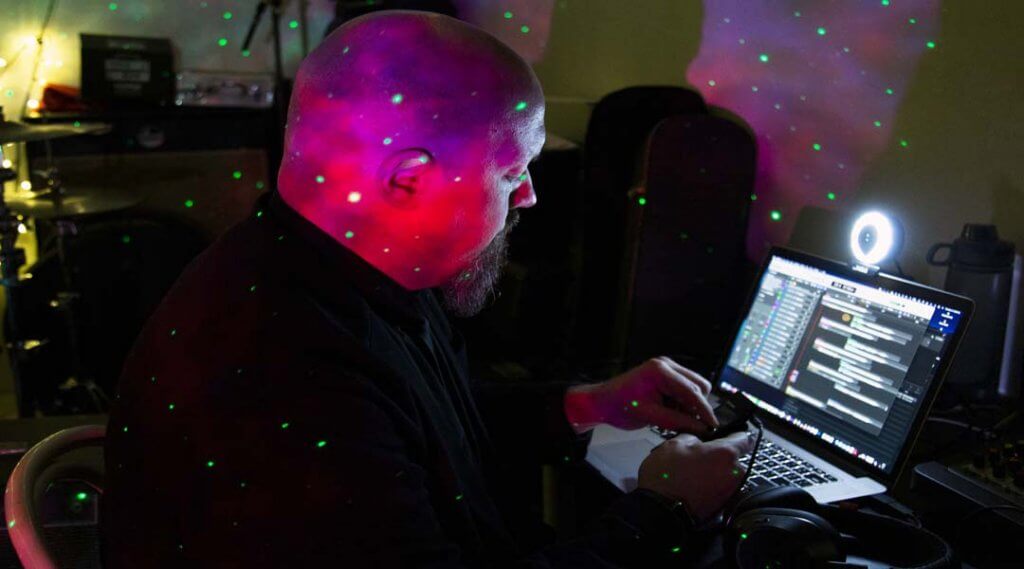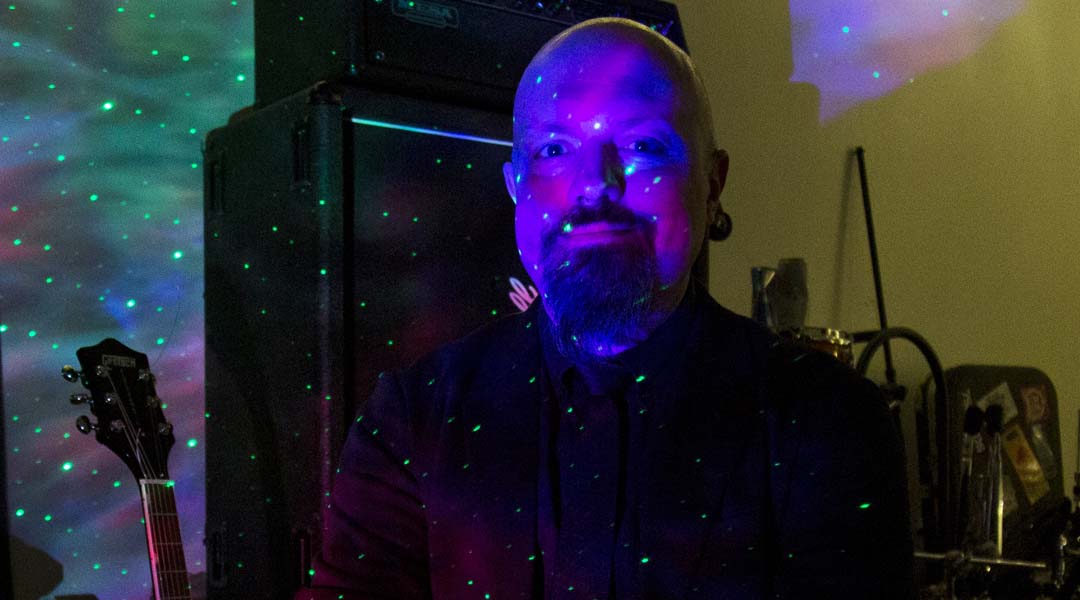Your support helps showcase local musicians and their work.
“We didn’t have much when I was a kid, not even enough to rent an instrument for school music instruction,” says local electronic musician Luke Ferdinand. “When our church moved to a new building, my parents had the opportunity to accept a donation of the old player piano. The automatic, paper-roll machinery was removed, and it was badly out of tune. Some keys didn’t work at all. It was a hulking, dusty old piano that felt like it was going to fall apart. My siblings and I were hooked.”
Playing and composing music—became Luke’s creative outlet for decades. He had heard about STACKS, Carnegie Library of Pittsburgh’s digital music streaming platform featuring local musicians. His friends had submitted work during previous open calls held twice a year, and he knew that anyone could listen for free while patrons with a library card could download songs at no charge. But the realities of life—a 9-to-5 job, studying for an advanced degree, being a husband and a father—forced music to take the back-seat. “Finding my way back to it had been a real challenge. With no room in the house for making music or for practice, no budget for equipment, and to be frank, no sleep, it didn’t seem possible.”
But hearing about the Library’s musical instrument lending program, supported by donors like you, sparked Luke’s imagination. “Suddenly, a whole spectrum of tools was available to me, for free, with the only cost being my own time. I decided to make an album, using only tools I borrowed from the Library, that would need to be completed by the end of the three-week loan.”
Within days, he was at CLP – Main in Oakland. As he looked at the available instruments, his mind started working. What to pick? Something small would be perfect—an instrument he could set up anywhere in the house. Even better if it could easily transfer sound to his laptop. Maybe a device that would encourage a collaboration with his kids? Scanning the shelves, his eyes landed on a stack of devices no bigger than a credit card. Without hesitating, he grabbed the Teenage Engineering Pocket Operator synthesizer, a tiny portable music gadget that creates beats and sounds.
Over the next few days, he dug into the device’s capabilities, learning how to layer bits of music to create rhythms and melodies while simultaneously overcoming his own lack of confidence. “Over time I came to question whether I even could make music anymore, or if it was time to let music go. The limitations set by the Library’s equipment loan helped in this regard because I knew I had a concrete end date in mind, which allowed me to focus and get over myself. The loan terms meant that I had to move fast, which could be stressful, but that was exhilarating in its own way.”
Luke would get home from work in the early evening, enjoy dinner and wait until his kids were playing before experimenting with the pocket synth. Each time, he discovered another new melody, another new beat. “I’d save the work and set it aside to spend the rest of the evening with my family,” he says. Once everyone headed off to bed, he’d plug a pair of headphones into the synthesizer and flip on a reading light, exploring each nightly composition until he eventually fell asleep… “sometimes with the robotic, repetitive synth beat lulling me into dreams,” he says. “Another night might require more dedicated time recording the music into my laptop, so I sequestered myself into a quiet part of the house to work while everyone was sleeping. There were a few evenings that turned into mornings without me realizing how much time had passed.”
One melody. Then another. Creating four tracks. Then five. In three weeks, he recorded a full album with nine tracks. He named it Structured Play, a nod to the concept of learning and overcoming challenges simply by letting your hair down.

The album was chosen by a jury of Library staff and music industry influencers during the Fall 2021 cohort, landing him a spot on the STACKS platform. Luke was also paid a one-time stipend for his work.
His sights are set on playing at venues beyond the typical rock-n-roll hall: spaces like art galleries, cafes and pop-ups. Luke is open for bookings through his Facebook page @LukeFerdinandMusic. In addition to being featured on STACKS, his music—The Peripheral, Luke Ferdinand, and more—are also available through Svylk Svylkyns Records on Spotify, iTunes and Bandcamp.
“Since being featured on STACKS, I’ve returned to performing and writing music, and it has been incredibly rewarding,” he says. “It gave me the means to invest in some much-needed equipment, and the confidence to proceed.”
Thank you for making music happen! Through your generosity, the Library is able to lend musical gadgets, instruments (we even have ukuleles!) and sheet music that spark creativity and decrease barriers for budding and professional local artists.
Check out STACKS, which features Pittsburgh’s vibrant and diverse music community! To listen to Luke Ferdinand’s album Structured Play featuring the Teenage Engineering Pocket Operator synthesizer, visit stacks.carnegielibrary.org.

